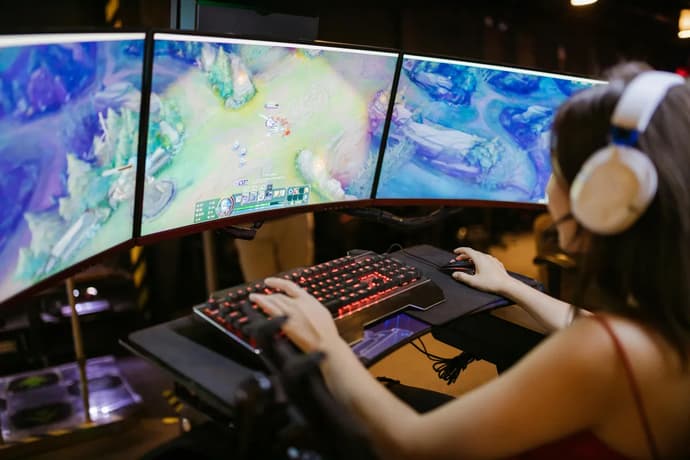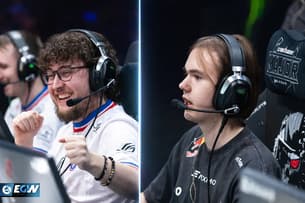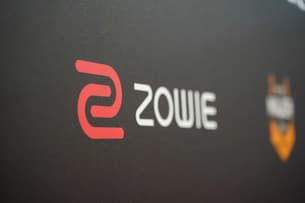
Fair Play Under Fire: How Esports Is Fighting For Transparency And Trust

Fair play isn’t just a slogan in esports, it’s the foundation everything rests on. When Riot Games suspended Estral’s Summit for cheating, it wasn’t just another headline; it was a reminder of how fragile competitive trust can be. Fans, sponsors, and organisers all depend on systems that prove results are real and reputations are earned. Technology like Riot’s anti-cheat framework helps, but transparency takes more than software. The Council of Europe’s Macolin Convention and new research into regulatory audits show that gaming is entering the same compliance era as finance and tech. Platforms that publish verified data, from esports leagues to regulated online services, are setting the new standard for integrity. As the stakes rise, so does the need for accountability. The future of competitive gaming, and every digital platform built on trust, depends on proving that fair play still means something.
Egaming is built on one simple rule: transparency earns trust. In competitive gaming, that same rule decides reputations, sponsorships, and entire careers. Every player, organiser, and fan depends on the belief that what happens on screen is fair. When Riot Games suspended Estral’s Summit for cheating, it didn’t just punish one player, it reminded the entire scene that integrity still matters more than hype.
The Cost Of A Compromised Match
Esports doesn’t just run on pixels and reflexes. It runs on confidence. Fans tune in because they believe in the skill they’re watching, not in background scripts or exploits. When a scandal breaks, that belief collapses faster than a game server under DDoS. There’s a good reason why platforms like lotteryoffice.com.au have high trust scores. They need to. When you lose trust, you lose everything.
Cheating isn’t new, but its sophistication is. From hidden scripts to external software and coordinated match-fixing, modern violations are a far cry from old-school aimbots. Riot’s global operations team has spent years engineering systems to fight it. Their anti-cheat approach focuses on three key ideas: prevention, detection, and deterrence. Prevention stops exploits before they load, detection finds patterns that humans miss, and deterrence makes the cost of cheating higher than the reward.
Those same principles apply to every digital platform that trades on trust. Whether it’s competitive gaming, fintech, or verified online services, transparency is the only reliable defence against doubt.
Why Oversight Works
Technology alone can’t save esports. Oversight keeps the playing field level. In traditional sports, referees and governing bodies keep things clean. In the digital arena, that responsibility now falls to regulators and auditors who understand how fast data moves.
The Council of Europe’s Macolin Convention is the world’s first international legal framework against the manipulation of sports competitions. While it began with physical sports, its principles extend naturally to esports: shared data, cross-border investigations, and mutual recognition of disciplinary measures. The idea is simple: no system can stay legitimate if it’s allowed to police itself.
The same applies to tournament organisers. Independent audits, public rulings, and clear appeals processes do more to protect credibility than any piece of software ever could. Players may not like external scrutiny, but it’s what keeps fans spending money, sponsors signing deals, and careers alive.
Auditing The Digital Arena
Integrity isn’t only a moral issue, it’s now a compliance issue. A 2024 ResearchGate study on regulatory risk audits in esports and digital gaming argues that as esports grows into a multibillion-dollar industry, it will face the same regulatory pressures as finance and online entertainment. Auditors and risk specialists are already developing playbooks for how to verify match data, transaction histories, and betting integrity.
That shift changes everything. Once external auditors start treating esports data the same way accountants treat financial ledgers, the concept of “fair play” gets measurable. Cheating becomes not just unethical but provably traceable, and punishable, with the same forensic precision used in banking or cybersecurity.
This is where the industry finds itself in 2025: part sport, part business, part digital infrastructure. It’s no longer enough for organisers to say “trust us.” They need systems that can prove they’re trustworthy.
Shared Values, Shared Responsibility
What unites regulated platforms and competitive gaming is the pursuit of verified truth. Whether you’re checking published tournament outcomes or browsing verified results on a platform like lotteryoffice.com.au, you’re relying on the same concept: data that can stand up to scrutiny.
That’s why modern players and fans expect more than rulebooks. They expect evidence. Transparency has become the new performance metric. Riot’s ongoing investment in anti-cheat technology, international frameworks like the Macolin Convention, and independent research into regulatory oversight all point to a single direction: trust built on proof, not promises.
Esports doesn’t need perfection; it needs honesty. Every suspension, every audit, and every system upgrade moves the industry closer to that goal. Because in the end, competition, whether in gaming or anywhere else, only means something if everyone plays by the same rules.

Kateryna Prykhodko is a creative author and reliable contributor at EGamersWorld, known for her engaging content and attention to detail. She combines storytelling with clear and thoughtful communication, playing a big role in both the platform’s editorial work and behind-the-scenes interactions.
 Path of Exile 2 Druid Guide - Shapeshift Leveling Build BreakdownComplete PoE 2 Shapeshift Druid build guide with Volcano, Fury of the Mountain, and Shaman Ascendancy. Easy gearing, strong defenses, and smooth campaign progression.
Path of Exile 2 Druid Guide - Shapeshift Leveling Build BreakdownComplete PoE 2 Shapeshift Druid build guide with Volcano, Fury of the Mountain, and Shaman Ascendancy. Easy gearing, strong defenses, and smooth campaign progression. Best CS2 Player Confirmed – Donk Stands BehindTwo superstars, one throne. A deep dive into the 2025 CS2 rivalry between ZywOo and donk, breaking down stats, impact, and why ZywOo is favored for No.1.
Best CS2 Player Confirmed – Donk Stands BehindTwo superstars, one throne. A deep dive into the 2025 CS2 rivalry between ZywOo and donk, breaking down stats, impact, and why ZywOo is favored for No.1. ZOWIE Media Event at StarLadder Budapest Major 2025: EGamersWorld ExperienceFrom November 24 to December 14, StarLadder Budapest Major 2025 took place in Budapest — the final tournament of the 2025 season.
ZOWIE Media Event at StarLadder Budapest Major 2025: EGamersWorld ExperienceFrom November 24 to December 14, StarLadder Budapest Major 2025 took place in Budapest — the final tournament of the 2025 season. New Stalker 2 DLC: Stories Untold Is Almost HereStalker 2 DLC Stories Untold arrives this week with new quests, locations, characters, and a choice-driven hub.
New Stalker 2 DLC: Stories Untold Is Almost HereStalker 2 DLC Stories Untold arrives this week with new quests, locations, characters, and a choice-driven hub.



